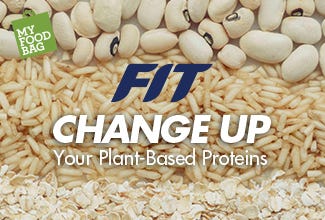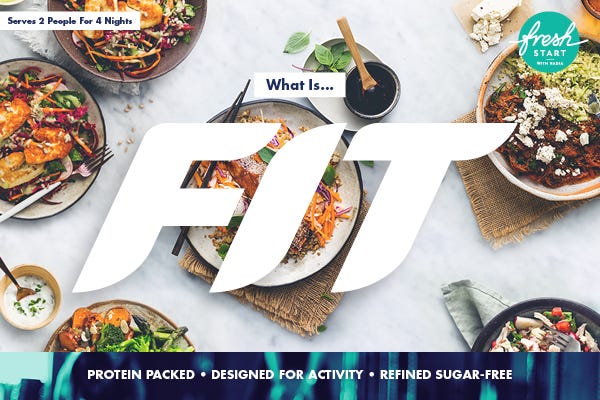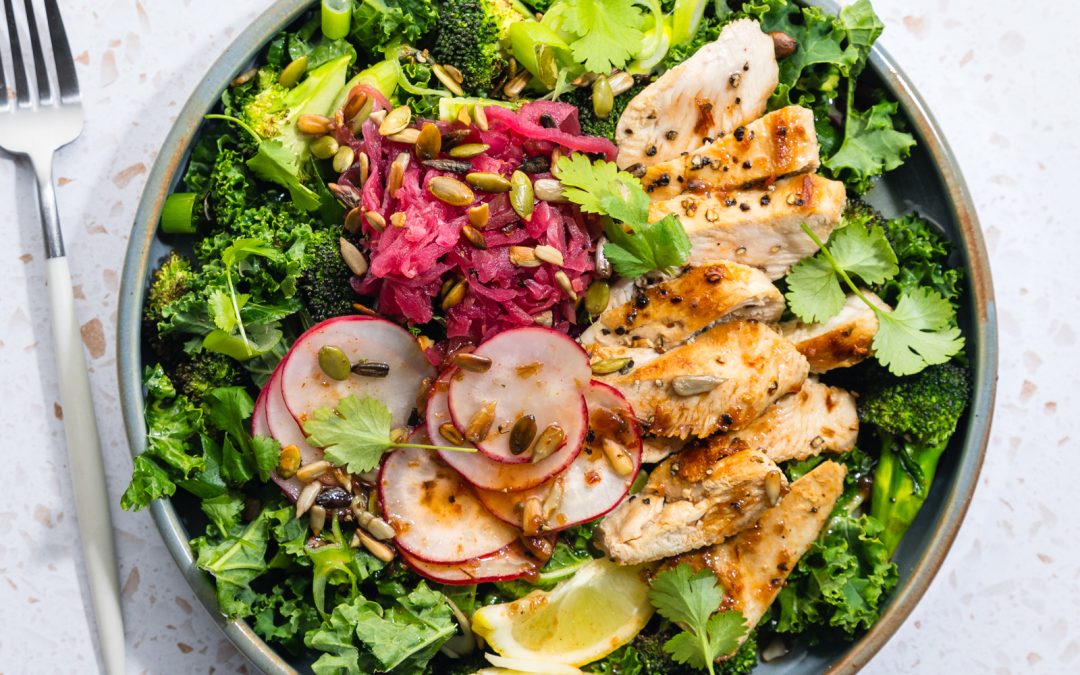
We’ve discussed the importance of protein intake before (see here), especially when we’re exercising regularly, but what ingredients can we add to our meals to obtain our dietary protein, without defaulting to meat sources?
Don’t get us wrong, lean meats are a great source of protein, as well as being a top source of two key nutrients, vitamin B12 and iron. But we shouldn’t only look to meat as our source of protein. There are many plant foods that contain protein, as well as a number of really key nutrients and fibre. As all foods have differing nutritional compositions, it’s really important to eat a variety of healthy foods, rather than focusing on only a handful of food items.
Protein is an essential nutrient for our bodies. The makeup of our body structure is hugely protein, and these proteins continue to turnover during our lifespan and following exercise. For this reason, we need to ensure we’re taking in high quality dietary proteins to allow for our body’s structure to remain strong and healthy and function effectively. The protein requirements of a normal adult are 0.75g per kilogram of body weight per day. For strength and endurance athletes, protein requirements are increased to around 1.2–1.7g of protein per kilogram of body weight per day, so regular gym goers and exercisers will typically fall between the 0.75–1.2g/kg window (1).
A little nutrition 101 — protein is made from a combination of 20 different amino acids, such as tryptophan or leucine. Of these 20 amino acids, our bodies are able to produce 11 on their own, however the remaining 9 must come from our diets. These 9 are referred to as the essential amino acids, as they are essential in our diets.
Animal products provide all 20 amino acids, also known as complete proteins, such as meat, fish, dairy or eggs, whilst most plant foods that deliver protein contain the majority of amino acids, but may be missing one or two of the essential amino acids. This isn’t an issue if we’re looking to both plant and animal protein sources, or if we’re eating a variety of plant based protein sources daily, such as legumes, whole grains and nuts. A plant-based complete protein is soy (e.g. edamame, tofu or tempeh). However, if we are following a vegan diet we need to be mindful that we’re consuming a wide variety of plants.
Top plant based protein sources include:
Try adding a combination of these ingredients to your dishes to boost your protein intake, rather than defaulting to increasing your meat portion.
- Legumes: chickpeas, lentils & split peas, red kidney beans, cannellini beans, black beans, adzuki beans, peas, soy & soy products (e.g. tofu, tempeh, miso, edamame beans).
- Whole grains (grains & whole grain flours): Spelt, amaranth, brown rice, farro, freekeh, sorghum, bulgur wheat, buckwheat, quinoa (although technically a seed), millet, oats.
- Nuts and seeds: chia seeds, hemp seeds, peanuts, pumpkin seeds, almonds, walnuts, linseeds, sesame seeds, cashew nuts, pine nuts, pecans, hazelnuts.
- Other: spirulina, nutritional yeast flakes, sweetcorn, broccoli, potatoes, artichokes.
Click here to find out more about Fresh Start Fit — the easiest way to get healthy, high protein dinners sorted for the week delivered to your door.


